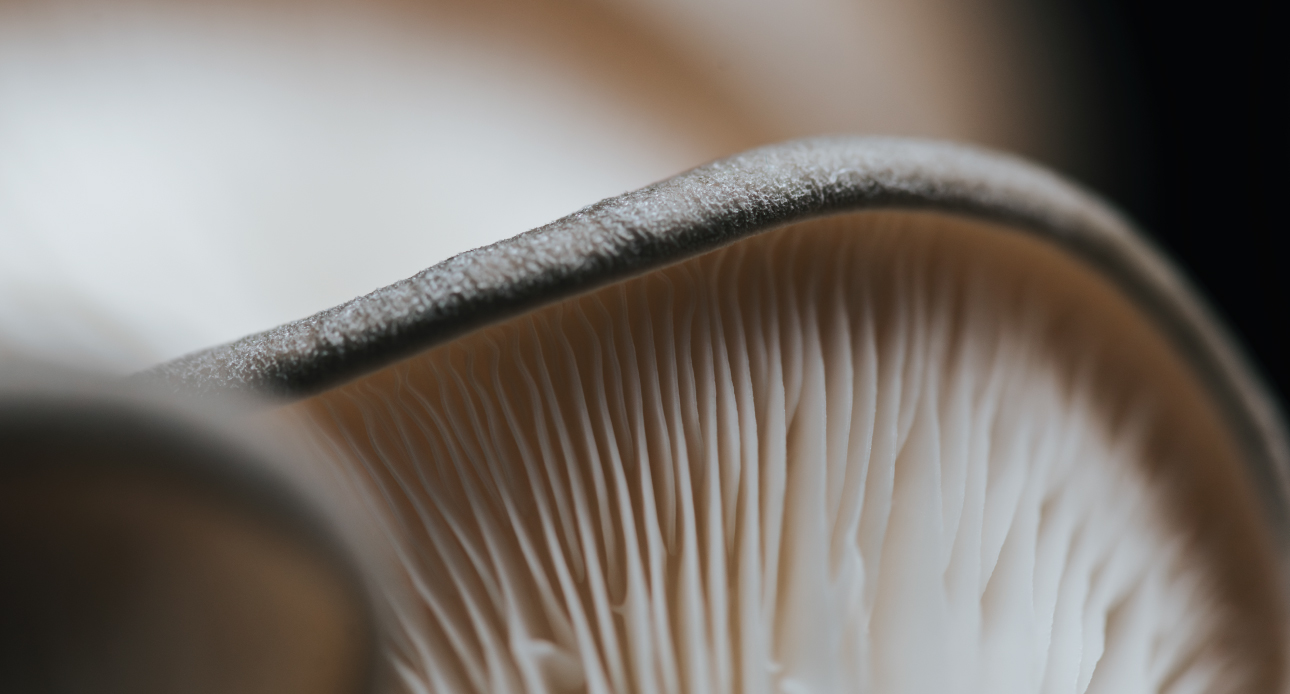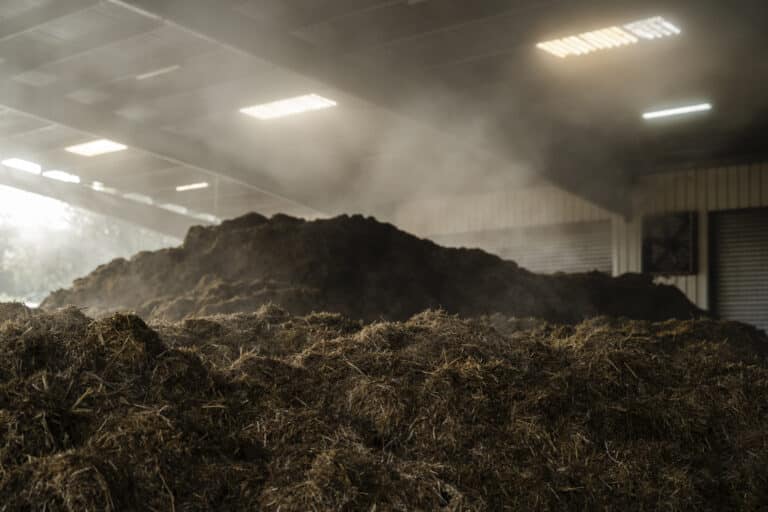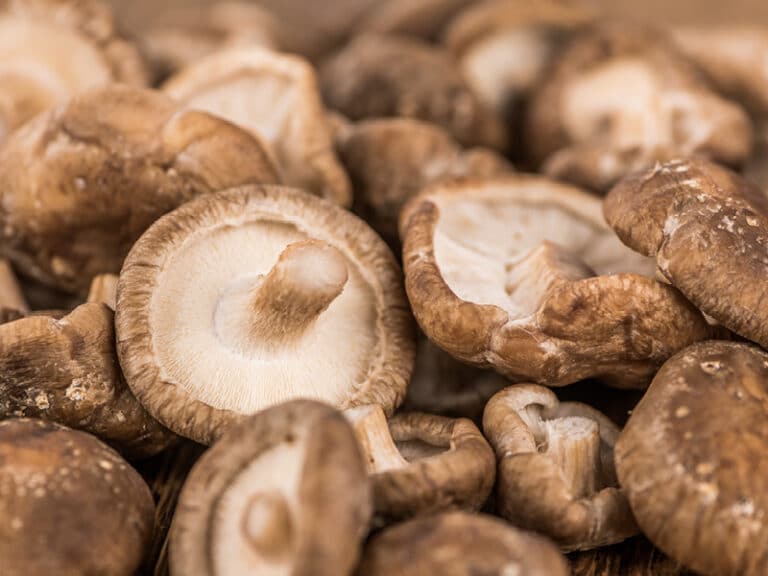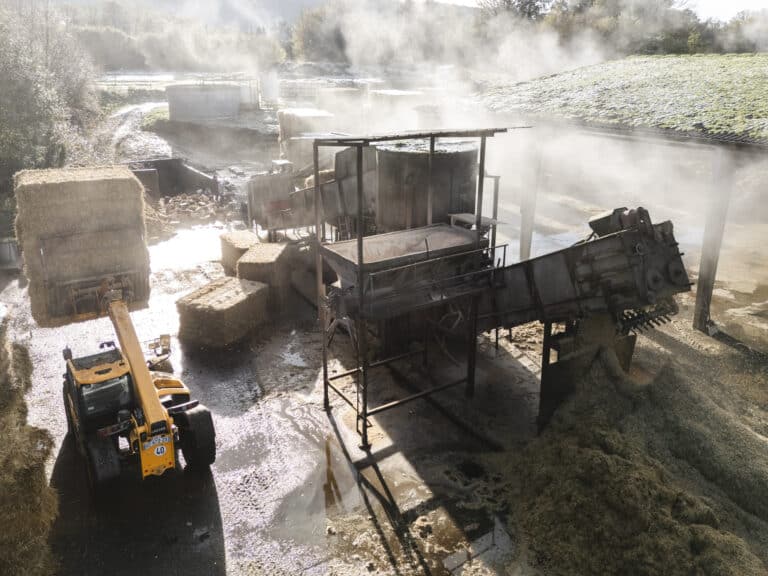Grey oyster mushroom (Pleurotus ostreatus) is a mushroom prized for its rapid cultivation and popular flavour. For professional mushroom growers, mastery of the incubated substrate of oyster mushrooms represents a major growth lever. An "incubated" substrate means that it has already been colonised by the oyster mushroom mycelium and is ready to bear fruit as soon as it arrives on your farm. In other words, you receive blocks of substrate ready to useAll you have to do is grow the mushrooms. This technical solution educational and effectiveis attracting an increasing number of professional producers looking to save time and secure their production. In this article, we explore in detail what a wholesale oyster mushroom incubated substrate is, its benefits to growers, the logistics you need to be aware of, how to best use it and how it can make economic sense for your mushroom farm. You'll discover how a ready-to-fruit substrate can optimise your returns while simplifying your day-to-day operations.
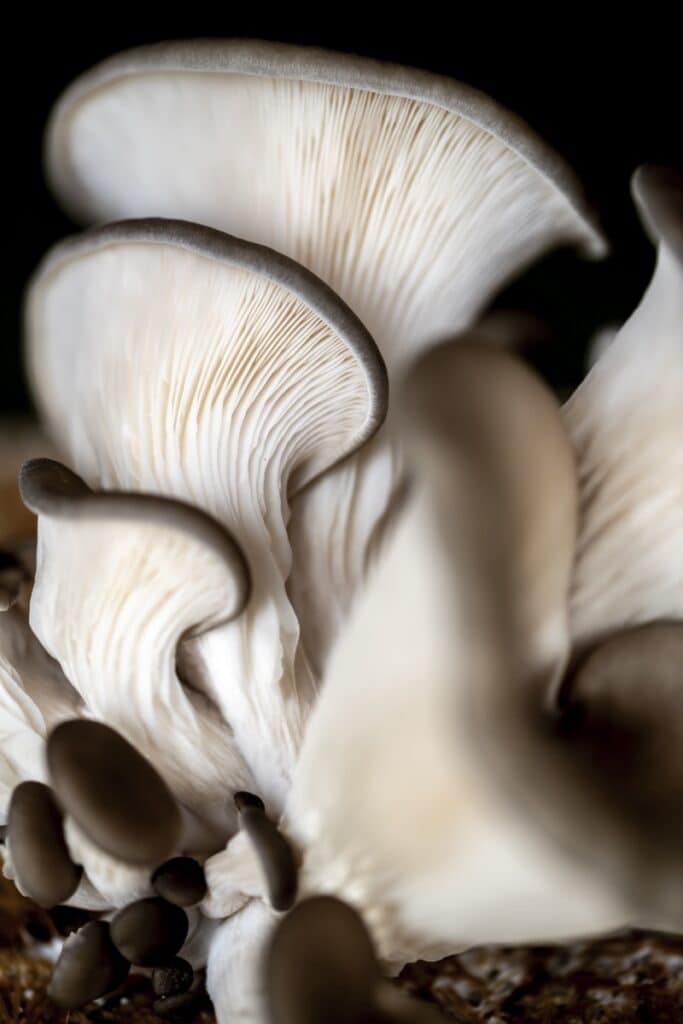
What is a substrate incubated with grey oyster mushrooms?
A incubated substrate of grey oyster mushroom is a culture medium (generally a pasteurised mixture of straw, sawdust or other enriched plant fibres) which has been seeded and fully colonised by the mycelium of the grey oyster mushroom at the supplier's facilities. In practical terms, it comes in the form of packaged blocks (often weighing around 10 to 15 kg each) with a completely white interior, a sign that the mycelium has developed throughout the mass. This substrate is said to be "ready to fructify" because once it has been delivered to the producer, all that remains is to place it in the right conditions to induce the formation of oyster mushrooms.
Buying incubated substrate means buying in large quantities, typically on pallets or in refrigerated lorries, for use in professionals who need volume for their production. The supplier carries out all the delicate stages upstream: preparation of the nutrient mixture, pasteurisation or sterilisation, inoculation with a high-performance oyster mushroom strain, and incubation in a controlled room for ~2 to 3 weeks. At the end of this process, the substrate block is ready to produce mushrooms. All the grower has to do is trigger fruiting in his mushroom house. This approach contrasts with the 'raw' unincubated substrate (known as phase 2), where the mushroom grower would have to seed and incubate himself - a time-consuming and risky procedure that he does not have to manage with the incubated substrate of wholesale grey oyster mushrooms.
In short, a substrate incubated with grey oyster mushrooms is a turnkey growing balesalready colonised to the core by the funguswhich can be used immediately for production. This solution is particularly well suited to professionals wishing to accelerate their growing cycles and make their yields more reliable.
Advantages of buying incubated oyster mushroom substrate
Opting for incubated oyster mushroom substrate rather than producing your own substrate has many benefits for professional growers:
- Considerable time savings : That's the number one advantage. By receiving a substrate that has already been colonised, you save several weeks' work. All you have to do is start fruiting. For example, instead of waiting 3 to 4 weeks (preparation + incubation) for the first primordias to appear, a substrate incubated with grey oyster mushrooms will produce oyster mushrooms in less than a week.only ten days or so . This means you can grow more crop cycles per year on the same surface, increasing your annual production.
- Health safety and loss reduction : Incubation is a critical phase where contamination (green mould, bacteria) can ruin the substrate. By buying a substrate that has already been incubated from a reliable supplier, you delegate this risky stage. The blocks delivered have been checked beforehand, and any contaminated batches have been discarded. Your loss rate is drastically reduced. You'll also avoid having to deal with contaminated waste, which is often costly and time-consuming, because such cases are the exception with an experienced substrate producer who has mastered hygiene.
- Simplicity and savings on materials: Using an incubated substrate of oyster mushroom in bulk greatly simplifies the cultivation process. There's no need for an autoclave, pasteuriser, sterile plating room or daily supervision of incubation rooms - all this infrastructure stays with the supplier. You receive a turnkey product. All you have to do is install it in your cultivation room and maintain the right parameters (temperature, humidity, ventilation) for the mushrooms to grow. This ease of use means that even new farms can start up without having to invest too heavily in laboratory equipment.
- High, regular yields : The incubated substrates designed by specialists are optimised to produce the maximum number of fungi. The supplier selects highly productive strains of oyster mushroomformulates a balanced substrate recipe, and conducts incubation to the ideal point to induce explosive fruiting. The result is generous, predictable flushes. For example, a 15 kg bundle of substrate can typically yield 4.5 to 7.5 kg of oyster mushrooms from the first harvest - a level that is difficult to achieve consistently with a home-made substrate. What's more, because each block is homogeneous, mushroom production is fairly uniform from one block to the next, making it easier to plan harvests.
- Easier production planning : Thanks to the reliability of the incubated oyster mushroom substrate, you can set your cultivation schedule precisely. The time between receiving the blocks and harvesting is short and stable, so it's easy to stagger your cultivation to get the best results. staggered harvests over time. For example, by having incubated substrates delivered every week or fortnight, you can organise a rotation: a new room goes into fruiting while another finishes its harvest. This fast pace would be much more difficult to maintain if you had to manage incubations of varying lengths yourself. The substrate incubated with grey oyster mushrooms therefore provides a predictability This will make it easier to meet your volume commitments to your customers.
- Fewer specialised skills required: Producing a high-quality oyster mushroom incubated substrate requires real mycological know-how (choice of raw materials, nutritional balance, pasteurisation techniques, asepsis, etc.). By lightening the incubation/seeding workload, the use of incubated substrates reduces the need for highly specialised skills within your team. Of course, you still need know-how for the fruiting phase (controlling the climate in the growth room), but you don't need to be an expert in microbiology or process engineering - the supplier takes care of that for you. This can be particularly useful for small structures where the manager already has many tasks to perform.
In short, buying incubated oyster mushroom substrate saves you precious time, ensures safer and more abundant production, and allows you to concentrate on the essentials of your job as a mushroom grower Oyster mushrooms: care for their growth and market your harvest.
Explore the performance of our substrates!
As part of our quality of service, we offer technical support by appointment on site or by telephone.
Substrate supply and storage logistics
When ordering incubated oyster mushroom substrate in large quantities, there are a few logistical aspects to bear in mind to get the best out of it. The delivery is generally carried out on pallets, in specialised refrigerated lorriesto keep the blocks at a low temperature during transport. Once the substrate has been fully colonised, the cold (typically between 2°C and 4°C) will help to slow down the metabolism of the mycelium and keep it in a dormant vegetative phase. This prevents the oyster mushrooms from starting to grow during the journey and ensures that the substrate arrives fresh and intact at your home.
When you receive your order, make sure you have the necessary handling equipment: a pallet truck or forklift can be useful for unloading heavy pallets of substrate. Each block often weighs around 12 kg, so a full pallet can weigh several hundred kilos. Check the condition of the blocks as soon as they arrive: they should be white (vigorous mycelium) and free from coloured mould or any suspicious odours. A slight scent of undergrowth is normal, indicating a healthy substrate.
If you do not grow all the substrates immediately, it is crucial to store in a cool place. Ideally, place the blocks in a cold room at between 2°C and 5°C. At this temperature, the mycelium remains stable and will not fruit prematurely. However, don't wait too long before use: it's recommended not to keep an incubated substrate of oyster mushroom in the cold for more than 1 to 2 weeks, so that it retains its full production potential . Prolonged storage could fatigue the mycelium or dry it out, reducing subsequent yields.
In short, plan your deliveries so that you can use them fairly quickly. Many producers opt for a staggered supply (e.g. fortnightly) rather than a massive one-off stockpile, to avoid excessive storage time. If cold storage is necessary, make sure that the cold chain is respected from the factory to your cold room. These logistical precautions will ensure that your bulk incubated substrates reach you in perfect health and physiological conditionready to start growing without delay.
Cultivation: from the arrival of the blocks to the first harvest
1. Preparing blocks for fruiting : When you are ready to start production, remove the blocks of grey oyster mushrooms from the cold and place them in your grow room. With oyster mushroom incubated substrates, the plastic bag is generally kept around the block, but it is already perforated (or pierced) in various places. The oyster mushrooms will naturally fruit as they emerge through these holes. Make sure you space the blocks or holes well apart to avoid the future mushrooms getting in each other's way. Within a few hours of returning to room temperature, the mycelium will wake up and enter the active fruiting phase.
2. Optimum growing conditions : Grey oyster mushrooms need specific conditions to give the best yield. Make sure you maintain a moderate temperaturetypically around 18°C (a range of 15 to 20°C is fine). L'relative humidity must be high, around 85 to 95%, so that the primordias (small mushroom buds) form without drying out. A light input is beneficial - not necessarily bright light, but at least diffuse or daylight, as oyster mushrooms need a light signal to develop properly. Finally, the ventilation is crucial: fresh air must be brought in to evacuate the CO₂ produced by the mycelium. Without air renewal, oyster mushrooms will grow elongated stems and smaller caps. Ideally, keep CO₂ below ~1000 ppm in the growing room. In practical terms, regular ventilation or an air extractor coupled with a filtered air inlet will help maintain a healthy atmosphere. By combining these parameters (adequate temperature, high humidity, fresh air and a little light), you will rapidly trigger the formation of oyster mushrooms on your incubated blocks.
3. First growth and harvest : Under these conditions, the first primordias white and downy generally appear in 3 to 5 days on the surface of the blocks. They then grow very quickly. In less than a week after moving into the growing room, the mushrooms reach maturity: it's time for the first harvestOyster mushrooms are often the most abundant. Keep a close eye on the development of the oyster mushrooms so that you can harvest at the right stage. The sign for grey oyster mushrooms is when the edges of the cap start to flatten out while remaining slightly curled downwards - at this stage, the mushroom is at its optimum size and has not yet released its spores. Harvest by gently cutting the base of the bunch with a clean knife, or by twisting slightly to detach the stem, so as not to tear off large chunks of substrate with it. Careful harvesting avoids damaging the block, which is preferable if you are aiming for additional shoots.
4. Second and subsequent flights : After the first harvest, don't throw away your incubated substrates immediately - they can often produce a second wave of oyster mushrooms, or even a third. Leave the blocks in place in the same room, maintaining humid conditions. The mycelium needs a short resting period to regenerate. In practice, after 7 to 10 days' rest, new primordium can form and produce a second crop around 2 weeks after the first. Note, however, that the quantity of mushrooms in the 2nd flush is generally lower the first, the substrate having been partly depleted of nutrients. Many professional growers choose to grow only one crop at a time. 1 or 2 volleys maximum with incubated oyster mushroom substrates, as the time/production ratio decreases over the following cycles. After that, the block is likely to be more vulnerable to contamination and the space it occupies could be better used by a new fresh substrate. Once your blocks are used up, you can take them out of production. They make an excellent compost or organic amendment for other crops (gardening, agriculture), making it possible to recycle these natural materials.
By following these instructions, growing from incubated substrates becomes almost a process "plug-and-play You concentrate on the microclimate of the room and the harvest, rather than on the preparation of the substrate itself. This makes oyster mushroom production more accessible and your results more reliable, although of course daily monitoring is still necessary to adjust the parameters and prevent any problems (faulty humidity pump, temperature variation, etc.). Overall, growing incubated substrates of grey oyster mushroom is quick and easyThis enables professionals to achieve significant production in a very short space of time.
Explore the performance of our substrates!
As part of our quality of service, we offer technical support by appointment on site or by telephone.
Profitability and productivity gains for your mushroom farm
Over and above the technical aspects, the use of incubated substrates has a positive impact on the profitability of your mushroom farm. It's true that buying a substrate that's ready to grow represents a higher cost than simply buying raw materials, but you have to weigh it up against the savings you'll make and the extra income you'll generate.
- More crop cycles per year: As mentioned above, the time saved on each cycle allows you to increase the number of annual rotations. For example, in the same room, you can run many more oyster mushroom cycles using incubated substrates (which give a yield in ~3 weeks including rest) compared with a complete cycle with incubation on site (which would take 6 to 8 weeks). By doubling (or even more) the number of annual harvests, you will mechanically increase your turnover, without needing to expand your facilities. Visit productivity per m² of your mushroom house.
- Reduction of fixed assets and expenses : Producing substrate yourself requires major investment (pasteurisation machines, autoclaves, mixers, clean rooms) and high energy costs (heating for pasteurisation, air conditioning for incubation, etc.). By buying incubated oyster mushroom substrate in bulk, you avoid these capital and operating costs. You also don't have to employ specialist staff to manage the seeding/incubation phase. So, even if the wholesale oyster mushroom incubation substrate includes the supplier's margin, it can come to cheaper in fine than in-house production, especially for small or medium volumes. Many growers find that when all the factors are taken into account (labour time, energy, losses due to contamination), buying ready-to-use substrates is economically advantageous.
- Faster time to market: For a company, being able to respond quickly to demand is a financial asset. If a customer contacts you with a large order for oyster mushrooms, or if the market is buoyant at a given time, having incubated substrates at your disposal means you can launch production immediately and have fruit for sale in one or two weeks. Conversely, if you had to prepare the substrate, you would have at least a month before delivering the finished product. This responsiveness can win you market share and additional contracts. What's more, the regularity of production conferred by the incubated substrate of grey oyster mushroom wholesale (predictable volumes every week) helps you to honour your commitments to your distributors, avoiding shortages or, on the contrary, unsold surpluses.
- Mushroom quality and added value: A well formulated and incubated substrate generally produces mushrooms of good quality (size, appearance, taste). Fleshy, regular grey oyster mushrooms will be more valuable on the market and will win the loyalty of your customers. The consistent quality of the end product is difficult to put a figure on, but it does play a part in the value of the product. commercial value of your production. By maintaining a high level of quality thanks to a high-performance substrate, you may be able to negotiate better selling prices or stand out from the competition. What's more, if you're aiming for labels (organic, etc.), a wholesale supplier of incubated substrate for grey oyster mushrooms can provide you with the necessary certificates (certified organic substrate, for example), giving you access to higher added-value markets.
In short, the substrate incubated with grey oyster mushrooms should be seen as a strategic investment for your mushroom farm. It transforms a slow, uncertain, traditional production model into one that's easy to adapt to. industrial, fast and reliablewithout you having to bear the financial and technical burden of this industrialisation. Profitability for oyster mushroom growers depends on optimising time and resources: and that's exactly what the incubated substrate for wholesale grey oyster mushrooms can do, saving you weeks of production and securing your harvests. Used properly, it improves your operating margin and the long-term viability of your business.
Explore the performance of our substrates!
As part of our quality of service, we offer technical support by appointment on site or by telephone.
Substrate quality, origin and certification
When choosing a supplier of incubated substrate for grey oyster mushrooms, pay attention to the quality of the product and the associated guarantees. A professional-quality substrate can be recognised by a number of factors:
- Ingredients and formulation : The best substrates use selected raw materials (cereal straw, hardwood sawdust, wheat bran, etc.) in optimal proportions. For example, EUROSUBSTRAT CALLAC states that 95% of the ingredients in its substrates are of French origin, with a recipe precisely adjusted to feed the mycelium . The right formulation ensures both rapid colonisation and abundant fruiting. Ask about the composition of the substrate (some suppliers provide technical data sheets) and check that it meets your requirements (e.g. absence of unwanted chemical additives, use of organic materials if necessary).
- High-performance oyster mushroom strains : The variety of mycelium seeded in the substrate has a huge influence on yield, growth rate and even disease resistance. A serious supplier works with different strains of Pleurotus ostreatus, tried and tested in production. Some strains are better suited to summer temperatures, others to winter temperatures, or have different shades of grey. Make sure that the substrate you choose matches the strain you're looking for (some growers offer several strains). varieties of grey oyster mushroom of your choice). A good supplier is transparent about the origin and characteristics of its strains, and even their pedigree (often from specialist mycology laboratories).
- Organic certification : If you sell organic oyster mushrooms, it's essential that the substrate is organic too (certified Organic Agriculture substrate), otherwise you won't be able to call your mushrooms organic. Many suppliers now offer incubated substrates Organic version in addition to the conventional version. This implies that the ingredients (straw, bran) are organic and that the mycelium comes from an organic strain. Check the certificates AB or equivalent of the supplier. EUROSUBSTRAT CALLAC, for example, offers all its substrate varieties in conventional and ORGANIC varieties, which is a criterion of confidence. What's more, an organic substrate guarantees that no pesticides or chemical fertilisers have been used, which can also be important for the intrinsic quality of the mushroom (even off-label).
- Traceability and control : A professional supplier documents his batches (date of manufacture, batch of straw used, strain inoculated, etc.). In the event of a problem, this traceability means that the source can be traced. For you as a customer, this also means a certain degree of regularity: you should receive uniform batches. Don't hesitate to ask your supplier what his quality control procedures (sterility tests, control sampling, announced average contamination rate, etc.). An experienced company will have strict protocols in place to guarantee a high quality substrate. holy and strong on delivery.
- Feedback and technical support : A good indicator of quality is the satisfaction of other mushroom growers using the substrate. If possible, ask other producers or consult case studies. The seriousness of the supplier can also be seen in thesupport They offer advice on cultivation, technical data sheets and after-sales service if you have any questions or concerns. For example, some suppliers offer a telephone follow-up service to help you optimise your growing conditions, which can be invaluable if you're just starting out with a substrate incubated with grey oyster mushrooms. Feeling you have a technical partner more than just a salesperson is a real plus.
By paying attention to these aspects, you ensure that the incubated substrate of wholesale oyster mushroom that you introduce into your operation is reliable, efficient and compliant to your needs. The quality of the substrate directly affects the quality of your oyster mushrooms, and by extension the satisfaction of your own customers. So it's best to go for a reputable supplier, even if the price is slightly higher, because the results you get from growing your oyster mushrooms will quickly make all the difference. Remember that in France the industry is fairly specialised: according to an article in the TelegramIn 2018, there were only two major suppliers of oyster mushroom and shiitake substrate in the country, one of them based in Brittany. This scarcity reflects the level of expertise required - and the importance of choosing the right partner.
A decisive advantage for professionals, to be adopted without hesitation
The substrate incubated with grey oyster mushrooms is proving to be an essential solution for professional mushroom growers wishing to improve efficiency and reliability. By freeing you from the time-consuming tasks of seeding and incubation, it allows you to concentrate your efforts on oyster mushroom growth and marketing, while increasing your yields and speed of turnaround. The advantages in terms of time, simplicity and productivity translate into greater profitability and more confident growth in your business. From controlled logistics (cold delivery, short storage) to easy cultivation and harvesting, every stage is designed to making life easier for producers and make oyster mushroom production more reliable.
If you're a professional mushroom grower looking to take your business to the next level or secure your supply, the ready-to-fruit wholesale oyster mushroom incubator substrate is an ideal choice for you. ally of choice. It has already proved its worth to many growers, who have been able to increase their volumes without compromising on quality. Contact us to find out more about our incubated oyster mushroom substrates (available in conventional and organic production) and our wholesale supply solutions. Our team is at your disposal to study your needs, give you technical advice and support you in your quest for even more efficient oyster mushroom production. By adopting the substrate incubated with grey oyster mushrooms, you can bring out the full potential of your mushroom house!
Explore the performance of our substrates!
As part of our quality of service, we offer technical support by appointment on site or by telephone.

